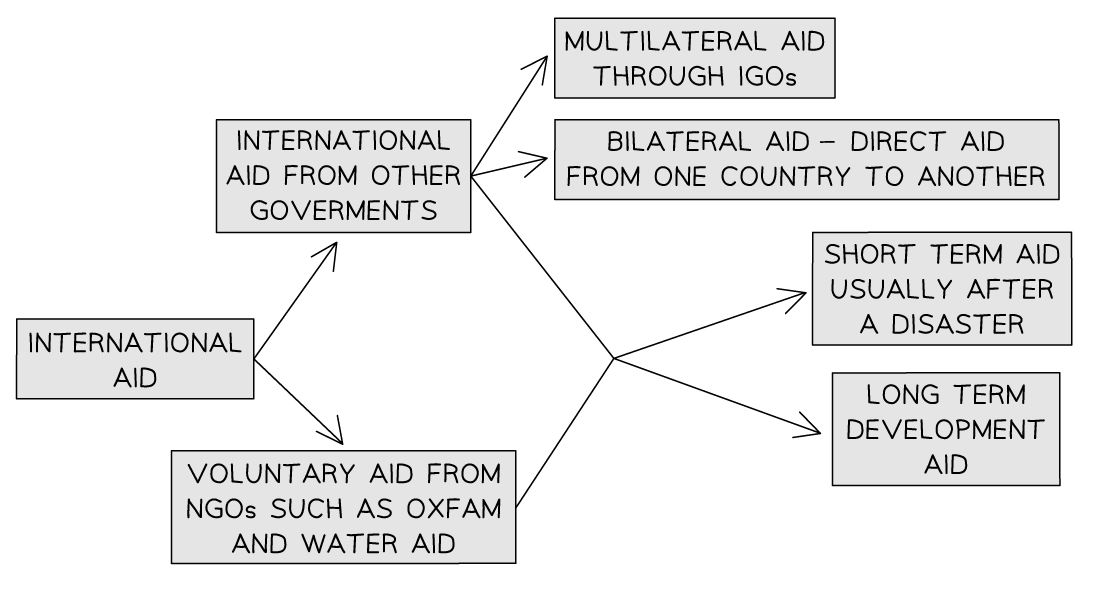Intergovernmental Agreements
- Intergovernmental organisations (IGOs) have a significant role in reducing uneven development
- Organisations include many which are part of the United Nations (UN):
- World Health Organisation (WHO)
- Food and Agriculture Organisation (FAO)
- United Nations Conference on Trade and Development (UNCTAD)
- United Nations Educational, Scientific and Cultural Organization (UNESCO)
- There are also organisations which are part of the UN but are not completely controlled by the UN including:
- The World Bank
- International Monetary Fund (IMF)
- The World Trade Organisation (WTO) is not part of the UN but has strong links with it
Role of IGOs
- Governments of countries around the world donate money to IGOs
- This money is then allocated to countries around the world for projects to assist the development
- The IMF, World Bank and WTO promote free trade and globalisation
- The UN developed the Sustainable Development Goals which have been agreed upon by 193 countries:
- Include 17 goals including zero hunger, clean water and quality education
- Debt relief is also used by IGOs to assist development:
- Allows countries to focus on developing and investing in areas such as infrastructure and education
- There is no guarantee that the country will spend it effectively


